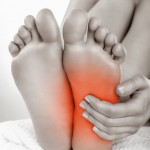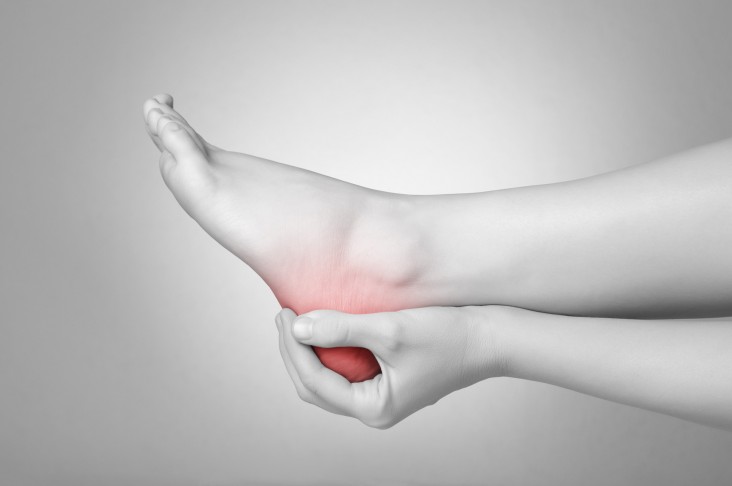In a year, heel pain will result in as many as 1 million visits by Americans to a medical professional for plantar fasciitis treatment. As much as 10 percent of Americans will experience this type of heel pain, and altogether spend between $192 to $376 million dollars in treatment. But what exactly is plantar fasciitis and how can you stop the pain or prevent it from happening? Here are the facts you need to know for proper treatment.
What is Plantar Fasciitis?
Plantar fasciitis is the inflammation of your plantar fascia–a tendon that stretches from the base of your toes to your heel–due to continuous stress on the foot. The pain usually manifests itself as a stabbing, deep pain in the foot, especially felt in the morning during one’s first steps. Pain then increases throughout the day when strenuous activity on the feet inflames the plantar fascia.
Typical Causes of Plantar Fasciitis
There are many possible causes that lead to the development of plantar fasciitis. These commonly include:
- Bad shoes, incorrect support: Having a pair of shoes that are worn out or don’t give you the correct arch support or common causes for foot pain. Correct support is important for individuals with flat feet or high arches.
- Long hours on your feet: This includes standing and walking at work for long hours, running long distances, practicing ballet. Runners are particularly susceptible to plantar fasciitis, but anyone who works on his or her feet for long periods of time can cause fascia stress.
- Heel striking: A common issues with runners, repetitive impact on the heel can cause the tears in the fascia. Heel striking is commonly due to over-striding, when runners develop a stride longer than their typical gait. This then causes ill-proportioned stress on the feet.
- Sudden changes in workout: Beginning longer runs without proper build-up or strength work, or sudden speed workouts without conditioning can stretch and injure the feet.
Overweight: Paired with wearing shoes without proper support, overweight individuals might develop plantar fasciitis pain.
Treating Plantar Fasciitis
The best course of action for people suspecting plantar fasciitis is to see a sports therapist such as myself immediately. Continued activity that stresses your foot can make the injury worse and harder to treat when you don’t see a doctor at the onset of pain. Using sports therapy and medicine, I know how to treat and prevent plantar fasciitis correctly, getting you back on painless feet.
 I’ll take a holistic approach to your treatment and recovery, making sure that each part of your body gets stronger to help your injury heal. Sometimes plantar fasciitis becomes a problem when parts of the body–especially the calves and Achilles tendon–are tight and not strong. When the calves are tight, the legs then pull on the plantar tendon, causing that pain. When left untreated, plantar fasciitis can cause other body aches and pains, especially in the knee, back, and hip. The holistic approach addresses all body parts that are connected to the localized pain in your foot, in order to help you heal correctly.
I’ll take a holistic approach to your treatment and recovery, making sure that each part of your body gets stronger to help your injury heal. Sometimes plantar fasciitis becomes a problem when parts of the body–especially the calves and Achilles tendon–are tight and not strong. When the calves are tight, the legs then pull on the plantar tendon, causing that pain. When left untreated, plantar fasciitis can cause other body aches and pains, especially in the knee, back, and hip. The holistic approach addresses all body parts that are connected to the localized pain in your foot, in order to help you heal correctly.
I’ll also design an orthopedic regimen that will carefully stretch, strengthen and relax the muscles in your legs and foot, which will help ease pain and discomfort. In addition, the regimen will help strengthen the rest of your body to help support your injury and keep your back, hips, or legs from overcompensating with your plantar fasciitis.
 For immediate relief, a deep tissue massage will also help in the healing process, as it releases tension and tightness in the foot and legs. And as the tendon heals, I can also recommend medicine for dulling acute pain if necessary. In some cases, a night brace might be used while sleeping, in order to stretch out and lengthen the calf muscles. This will help your body from putting too much tension on your plantar fascia.
For immediate relief, a deep tissue massage will also help in the healing process, as it releases tension and tightness in the foot and legs. And as the tendon heals, I can also recommend medicine for dulling acute pain if necessary. In some cases, a night brace might be used while sleeping, in order to stretch out and lengthen the calf muscles. This will help your body from putting too much tension on your plantar fascia.
If you begin to feel pain in your heel and foot, don’t delay! See me as soon as possible. I’ll help ease your discomfort and make you ready for that next challenge.


